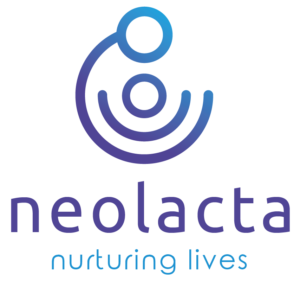Antenatal classes, also known as prenatal or childbirth education classes, play a vital role in guiding expectant parents through the journey of pregnancy, childbirth, and early parenthood. These classes offer a wealth of information, support, and practical skills to empower couples for a positive pregnancy and birth experience. In this comprehensive exploration, we delve into the multifaceted role of antenatal classes and how they contribute to preparing parents for the exciting and transformative adventure of welcoming a new life into the world.
Antenatal classes offer valuable preparation for your baby’s birth, providing confidence and essential information. These classes teach you how to care for and feed your baby, maintain a healthy pregnancy, and create a thoughtful birth plan, taking into account various labor and birth arrangements and available choices. Additionally, you’ll have the opportunity to meet the individuals involved in your care during labor and after the birth. These sessions provide a platform to discuss your plans and concerns with both professionals and fellow parents.
Understanding the Significance of Antenatal Classes
1. Educational Empowerment:
Antenatal classes serve as educational platforms, imparting essential knowledge about pregnancy, foetal development, labour, and postpartum care. Understanding the physiological changes in the mother’s body and the growth milestones of the baby fosters informed decision-making and enhances confidence.
2. Birth Plan Guidance:
Crafting a birth plan is a crucial aspect of preparing for childbirth. Antenatal classes guide parents in articulating their preferences, discussing pain management options, and understanding potential interventions. This empowers couples to actively participate in the decision-making process.
3. Emotional Preparation:
Pregnancy is a time of emotional flux, and antenatal classes provide a supportive environment for expectant parents to express their fears, concerns, and aspirations. Emotional preparedness is cultivated through discussions on the emotional aspects of childbirth and the postpartum period.
Antenatal Classes and Partner Involvement
1. Partner’s Role in Labor
Antenatal classes actively involve partners, educating them on their role during labor and birth. Partners gain insights into providing emotional support, assisting with comfort measures, and actively participating in the birthing process.
2. Building a Supportive Network
Antenatal classes create opportunities for couples to connect with other expectant parents. This shared experience fosters a supportive network, allowing couples to share insights, concerns, and establish lasting bonds with those on a similar journey.
3. Communication Skills
Effective communication is vital during childbirth. Antenatal classes equip partners with communication skills, ensuring they can advocate for the mother’s needs and preferences while maintaining a collaborative relationship with the healthcare team.
Practical Skills and Techniques
1. Breastfeeding Education:
Antenatal classes offer comprehensive breastfeeding education, covering latch techniques, proper positioning, and addressing common challenges. This knowledge facilitates a smooth breastfeeding initiation and fosters a positive breastfeeding experience.
2. Prenatal Yoga and Relaxation Techniques:
Physical and mental preparation is essential for childbirth. Antenatal classes often incorporate prenatal yoga and relaxation techniques, empowering mothers with strategies to manage pain, enhance flexibility, and promote overall well-being.
3. Labor Pain Management
Understanding pain management options is a significant component of antenatal education. From natural pain relief methods to medical interventions, expectant parents are informed about the available choices, allowing them to make decisions aligned with their preferences.
Postpartum Preparedness
1. Newborn Care
Antenatal classes extend their focus beyond childbirth, providing guidance on newborn care. Topics may include diapering, bathing, recognizing feeding cues, and managing common newborn challenges, ensuring parents feel competent in caring for their infant.
2. Postpartum Mental Health
Antenatal education encompasses postpartum mental health discussions. By shedding light on the potential emotional challenges post-birth, these classes empower parents to recognize symptoms of postpartum depression or anxiety and seek timely support.
Accessing Antenatal Classes
1. In-Person Classes
Traditional in-person antenatal classes offer face-to-face interactions, fostering a sense of community among expectant parents. These classes often include hands-on activities, group discussions, and the opportunity to tour birthing facilities.
2. Online Antenatal Classes
The digital age has facilitated the availability of online antenatal classes. These classes provide flexibility, allowing parents to access information at their own pace. Virtual platforms offer a diverse range of resources, including webinars, videos, and interactive forums. Save Babies conducts online Antenatal Classes offering information on labour and breastfeeding.
3. Hospital-Based Classes
Many hospitals offer antenatal classes as part of their maternity care services. Hospital-based classes provide insights into specific birthing practices, policies, and resources available at the chosen healthcare facility.
Conclusion
In conclusion, antenatal classes serve as invaluable tools for expectant parents, guiding them through the physical, emotional, and practical aspects of pregnancy, childbirth, and early parenthood. By fostering knowledge, building support networks, and equipping parents with practical skills, these classes play a pivotal role in shaping a positive and empowering birth experience. Whether conducted in-person or online, antenatal classes contribute significantly to the holistic preparation of couples, ensuring they embark on their parenting journey with confidence, resilience, and a strong foundation of knowledge.




